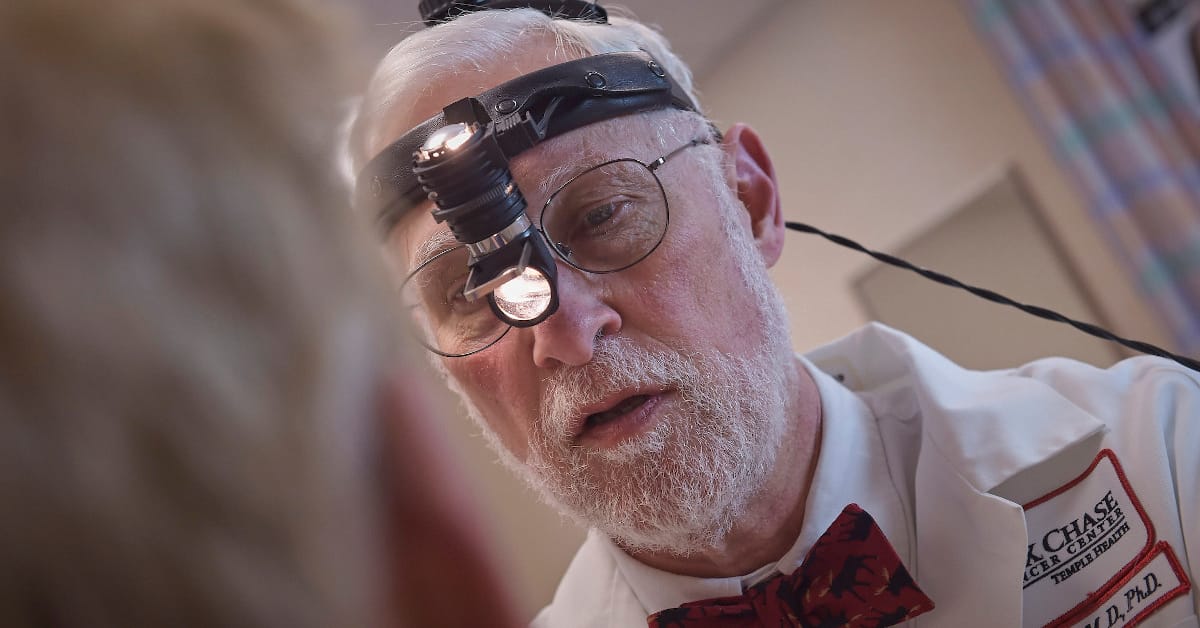
Cancer Staging: Why It’s Important And Why Accuracy Matters
-
Updated December 18, 2020
If you’re diagnosed with cancer, one of the most important things you’ll learn is your cancer’s stage. It’s a way of describing how much cancer is in your body and where the cancer is located.
“That knowledge is crucial since doctors need to know your cancer’s stage to advise the best treatment options,” said John (Drew) Ridge, MD, PhD, FACS, a head and neck surgical oncologist at Fox Chase Cancer Center.
For example, treatment for an early-stage cancer may call for surgery or radiation, while a more advanced stage may be best treated with chemotherapy. Staging is so critical, in fact, that you should never begin treatment without it, Ridge said.
Cancer staging can also help your doctor:
- Understand how serious your cancer is and your prognosis. “It’s important to remember, however, that the prognosis with staging is based on large groups of people with similar tumors,” Ridge said. “But staging can’t predict with absolute certainty, what will happen to you.”
- Identify clinical trials you may be able to join. These research studies test new cancer treatments to see how well they work.
How cancer is staged
To stage most cancers, doctors consider the size and location of the original tumor, whether the cancer has spread to lymph nodes, and whether it has spread through the bloodstream to other parts of the body. Sometimes doctors consider other factors too, such as the cancer cell type and grade—or how cancer cells look under a microscope.
Usually, cancers that have already spread when first detected are harder to control than those that haven’t. Harder-to-control cancers are often assigned a higher stage. Stages range from I to IV, with IV the most advanced. Some cancers also have a stage 0—when cancer cells are present but cannot yet spread.
Because there are some differences in how particular cancers behave, the same stage may have a different prognosis for different cancers, but the general idea is that most stage I cancers have about the same chance of being cured, most IIs do worse than stage I cancers, etc.
Accuracy is key
To figure out a cancer’s stage, doctors may use a variety of exams and tests, including imaging (like x-rays), blood tests, surgery to remove lymph nodes, and tumor biopsies.
“Accurate staging hinges on how well these tests are conducted and the results interpreted—and both take expertise and experience,” Ridge said.
Consequently, it usually is to your advantage to turn to a major cancer center like Fox Chase for staging, especially if you have an uncommon cancer.
Doctors specialize in diagnosing and treating specific cancers at these types of centers, which helps them accurately assign the right stage. If you choose to get a second opinion at Fox Chase about a cancer diagnosis, your staging will automatically be reviewed by one of our experts.
Always ask questions
No matter where you turn for cancer care, getting answers to questions like these, Ridge said, can help you better understand your cancer and its stage:
- Where did my cancer start?
- What is the stage or extent of my cancer?
- Has the cancer spread to my lymph nodes?
- Has the cancer spread to other areas of my body? If so, where?
- Should I have more tests before treatment begins? If so, what are they? And why do they need to be done? Are there tests that I do not need?
We’re here to help
If you’d like to schedule an appointment with one of the cancer experts at Fox Chase, you can request an appointment online or call our New Patient Office at 888-369-2427.
